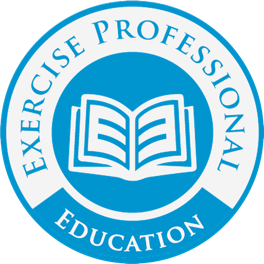News & Articles
The Ethics of a Personal Trainer/Exercise Professional.
An Excerpt from a course offered by the Muscle System Consortia: Motor Control: Pathology, Assessment and Improvement Philosophical Basis, Research, and Methodology
RESPECT FOR ESTABLISHED SCIENCE
Seek to balance rational and empirical knowledge with a critical thinking mindset. Scholars and researchers have been working diligently for centuries on a variety of problems and issues, which are relevant to human health and wellness. Among the most important of these are physiology, neuroscience, anatomy, and physics. Use an evidence based approach to exercise programming.
RESPECT FOR OTHERS
Be courteous and treat individuals with equal respect and dignity regardless of race, sex, or nationality. A Personal Trainer/Exercise Professional is a relationship-based business. Given the intimate nature of the relationships developed (clients, colleagues, managers, other health professionals), a foundation of respect for the human dignity, autonomy, privacy, rights, and interests of individuals who will experience the consequences of your decisions is necessary.
RESPECT FOR LANGUAGE
Ensure clear communication. Not only are professional relationships built and supported by communication dependent upon language (verbal, symbolic, somatic) thinking is also language driven. The meanings, use, and definitions of words are of great importance.
RESPECT FOR FACT
Find out the facts surrounding an issue prior to developing a premature conclusion. Recognize the presence and influence of biases and work to overcome them when making choices about exercise and exercise process.
HONESTY
Be honest and truthful in all client and inter-provider transactions. Do not deliberately mislead or deceive others by plagiarism, purposeful omission, lying, and partial truth in order to protect the ego and avoid responsibility.
INTEGRITY
Demonstrate professional and personal integrity. Live and work consistently by the courage of one’s convictions by being ethical even in the face of peer pressures to do otherwise; Have and live by principles, staying consistent and reliable in fighting for one’s beliefs. Do not violate principles and ethics for expediency.
TRUSTWORTHY
Behave in a way worthy of trust. Be forthcoming in providing information and correcting misunderstandings of fact with clients and other providers. Make every effort to fulfill promises and commitments made to clients. Be a good steward of the client’s health even when they may not recognize the risks of exercise.
COMPASSIONATE
Recognize that a professional relationship with the client is an interpersonal transaction. Demonstrate sensitivity, benevolence, and kindness. Be attentive and listen carefully to a client’s body language and verbal expressions regarding how they feel and what their body is doing before, during, and after an exercise session.
LAW ABIDING
Abide by local, state, and federal laws and regulations relating to one’s professional activities. Honor professional potentials and constraints. Recognize that you are not an island only beholden to yourself. Respect medical providers and their role in the healthcare continuum.
COMMITMENT TO EXCELLENCE
Pursue excellence in role responsibility. Endeavor to improve knowledge and practical competencies and contribute to the ongoing professionalization of the exercise field.
LIFE LONG LEARNER
Continually pursue educational coursework and materials that inform technical proficiencies and interpersonal communication. Quest to understand relevant professional information at deeper levels. Work to elevate your own professional standing. Encourage and support the learning process of colleagues.
ACCOUNTABLE
Be transparent and open to review of professional behaviors. Accept personal responsibility for one’s actions and be prepared to accept the consequences of those actions. Respect licensed medical provider recommendations and direction.
Provide progress reports when requested and refer to appropriate medical providers when negative health issues impact the client’s ability to exercise.
